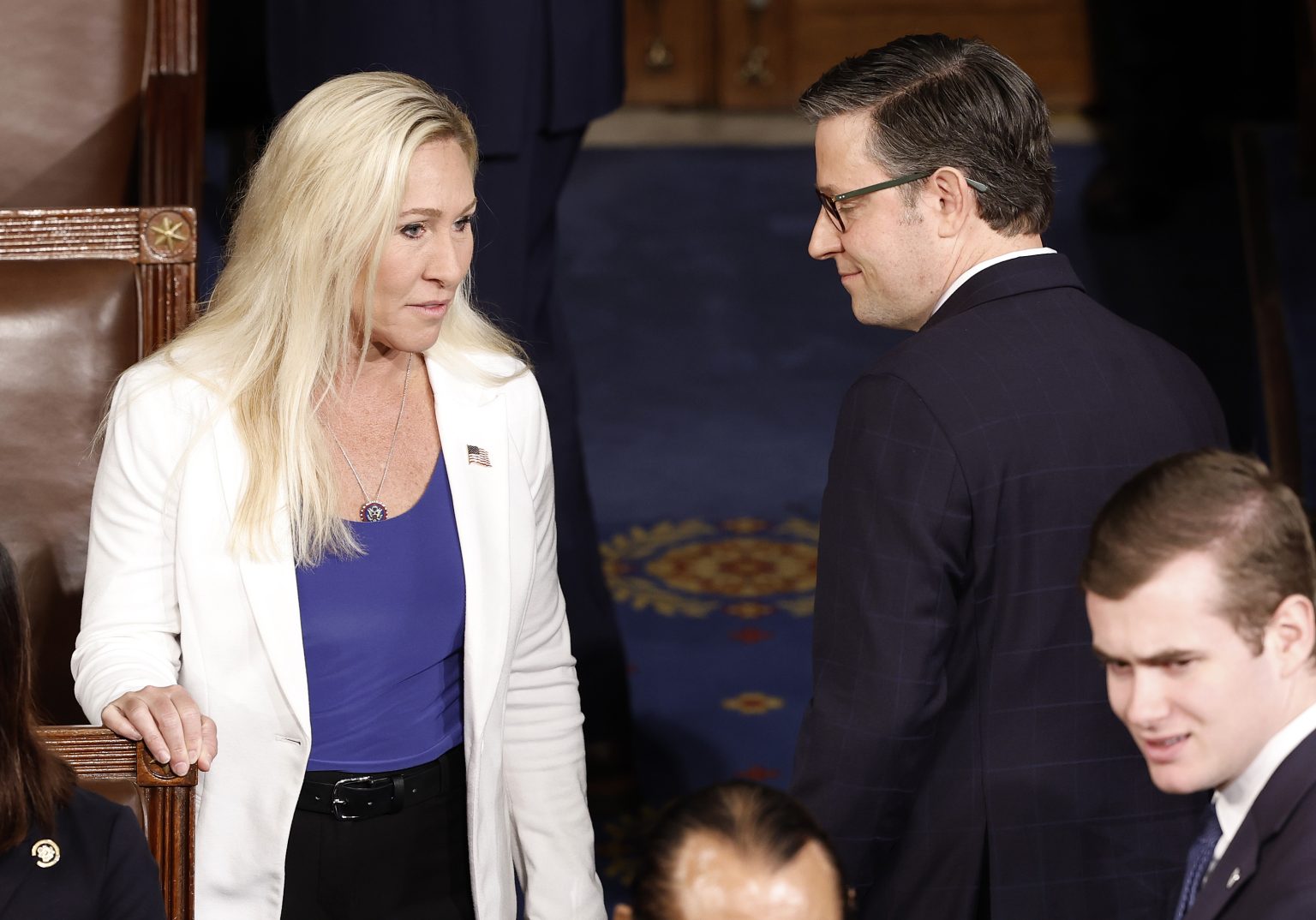The impending House Speaker election on January 3rd has become a focal point of political tension within the Republican Party, threatening to overshadow President-elect Donald Trump’s return to the White House. Incumbent Speaker Mike Johnson, despite enjoying broad support within the House GOP, faces a precarious path to retaining his gavel due to the party’s slim majority and internal divisions. The situation underscores the challenges of governing with a narrow margin and the potential for intra-party conflicts to disrupt crucial legislative processes, including the certification of the presidential election results. The endorsement of Representative Marjorie Taylor Greene, a prominent figure in the MAGA wing of the Republican Party, represents a significant development, potentially solidifying Johnson’s support and offering a path towards unity. However, lingering dissent within the party, exemplified by Representative Thomas Massie’s declared opposition, highlights the fragility of Johnson’s position and the ongoing struggle for control within the GOP.
The political dynamics surrounding the speakership vote are complex, reflecting a broader struggle within the Republican Party between its establishment and more hardline factions. Johnson, despite holding the speakership, has faced criticism from some conservatives for perceived compromises with Democrats, particularly on budgetary matters. This tension came to a head earlier in the year when Greene led an effort to remove Johnson from the speakership, illustrating the depth of the divide within the party. Now, Greene’s endorsement signals a potential shift in strategy, prioritizing party unity and support for Trump’s agenda over ideological purity. This evolving alignment underscores the fluidity of political alliances and the pragmatic calculations driving decision-making within the GOP as it navigates a divided landscape.
The outcome of the speaker election holds significant implications for the functioning of the House and the broader political landscape. Securing the speakership requires a majority of the members present and voting, a challenging task given the narrow Republican majority and the presence of dissenters within the party. If Johnson fails to secure the necessary votes, the House will be unable to conduct official business, including the crucial task of certifying the presidential election results on January 6th. This potential delay poses a significant risk to the peaceful transfer of power and could further exacerbate political tensions. The uncertainty surrounding the vote highlights the fragility of democratic processes and the importance of resolving internal party conflicts to ensure the smooth functioning of government.
The endorsement of Donald Trump represents a crucial intervention in the speakership race, bolstering Johnson’s chances and potentially swaying undecided Republicans. Trump’s endorsement carries significant weight within the party, particularly among his loyal base of supporters, and could prove decisive in securing Johnson the necessary votes. Trump framed his support for Johnson as essential for advancing his agenda and providing “immediate relief” from the policies of the previous administration. This appeal to shared goals aims to unite the party behind Johnson and prioritize the implementation of Trump’s policies. However, the effectiveness of Trump’s endorsement remains to be seen, given the existing divisions within the GOP and the lingering concerns about Johnson’s past actions.
The reactions from other members of Congress reflect the diverse perspectives within the Republican Party and the ongoing debate over the speakership. Representative Thomas Massie’s vocal opposition to Johnson, despite his support for Trump, highlights the limits of Trump’s influence and the enduring power of ideological convictions. Other Republicans, such as Chip Roy of Texas, remain undecided, expressing concerns about Johnson’s leadership and its potential impact on their ability to advance the president’s agenda. These reservations underscore the ongoing challenges facing Johnson and the need to build broader consensus within the party. Supporters of Johnson, like Dusty Johnson of South Dakota, view Trump’s endorsement as a significant boost to his chances, further intensifying the drama surrounding the vote.
The upcoming speaker election represents a critical moment for the Republican Party and the future of American politics. The outcome will not only determine the leadership of the House but also shape the political landscape for the next two years. The narrow Republican majority, coupled with internal divisions, creates a high-stakes environment where every vote carries significant weight. The potential for delays in certifying the presidential election results adds further urgency to the proceedings and underscores the importance of a smooth and orderly transition of power. The speaker vote will serve as a crucial test of the Republican Party’s ability to govern effectively and address the pressing challenges facing the nation.

